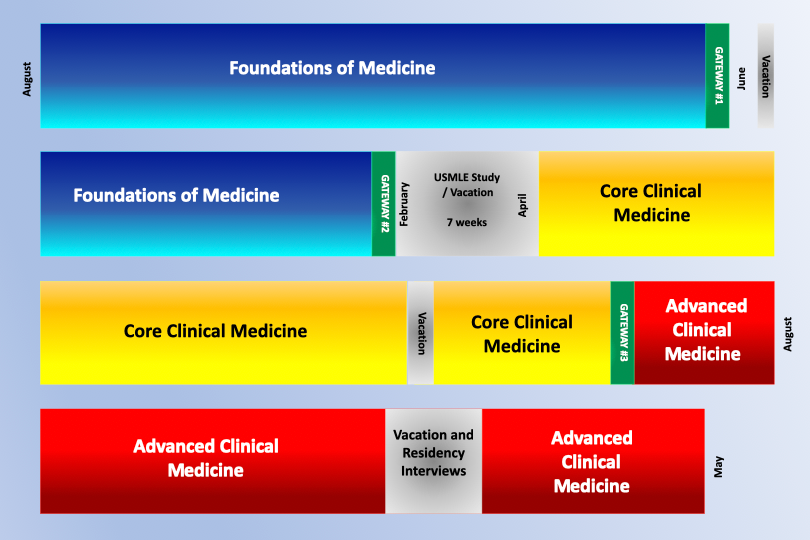Curriculum Overview
Three phase structure of the four years of the new curriculum:
The curriculum in the M.D. program is designed to prepare physicians to practice medicine ethically and compassionately in a diverse world where technological advances and evolving regulatory issues present continual challenges and opportunities. The College of Medicine provides a breadth of foundational science and clinical training. The curriculum provides students a logical four-year progression of skills and knowledge.

Throughout this 18-month phase of the curriculum, students develop the foundational understanding and skills necessary to begin to care for patients on clerkships. Students begin to form their professional identity from day one as they learn clinical skills, foundational medical knowledge, and the skills needed to develop into lifelong learners.
Paired clerkships during the 12 months of Core Clinical Medicine enhance interdisciplinary teaching across clerkships and support integration of relevant basic science knowledge.
The 14 months of Advanced Clinical Medicine is designed to prepare students for post-graduate training and lifelong learning. Students are required to learn to care for complicated and/or unstable patients as well deepen their understanding of research.
The Gateways are evaluation points located at the following points of the curriculum; before the second year of the Foundations of Medicine curriculum, before entering the Core Clinical phase, and before the Advanced Clinical phase. These are points in the curriculum at which students reflect on their mastery of the competencies and the faculty certify that the students meet expectations in the competencies.